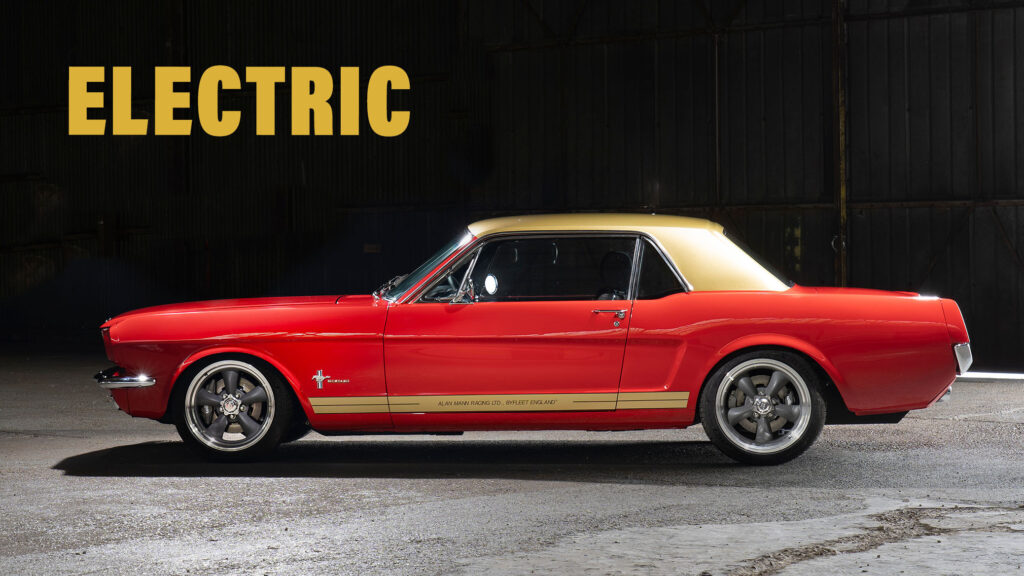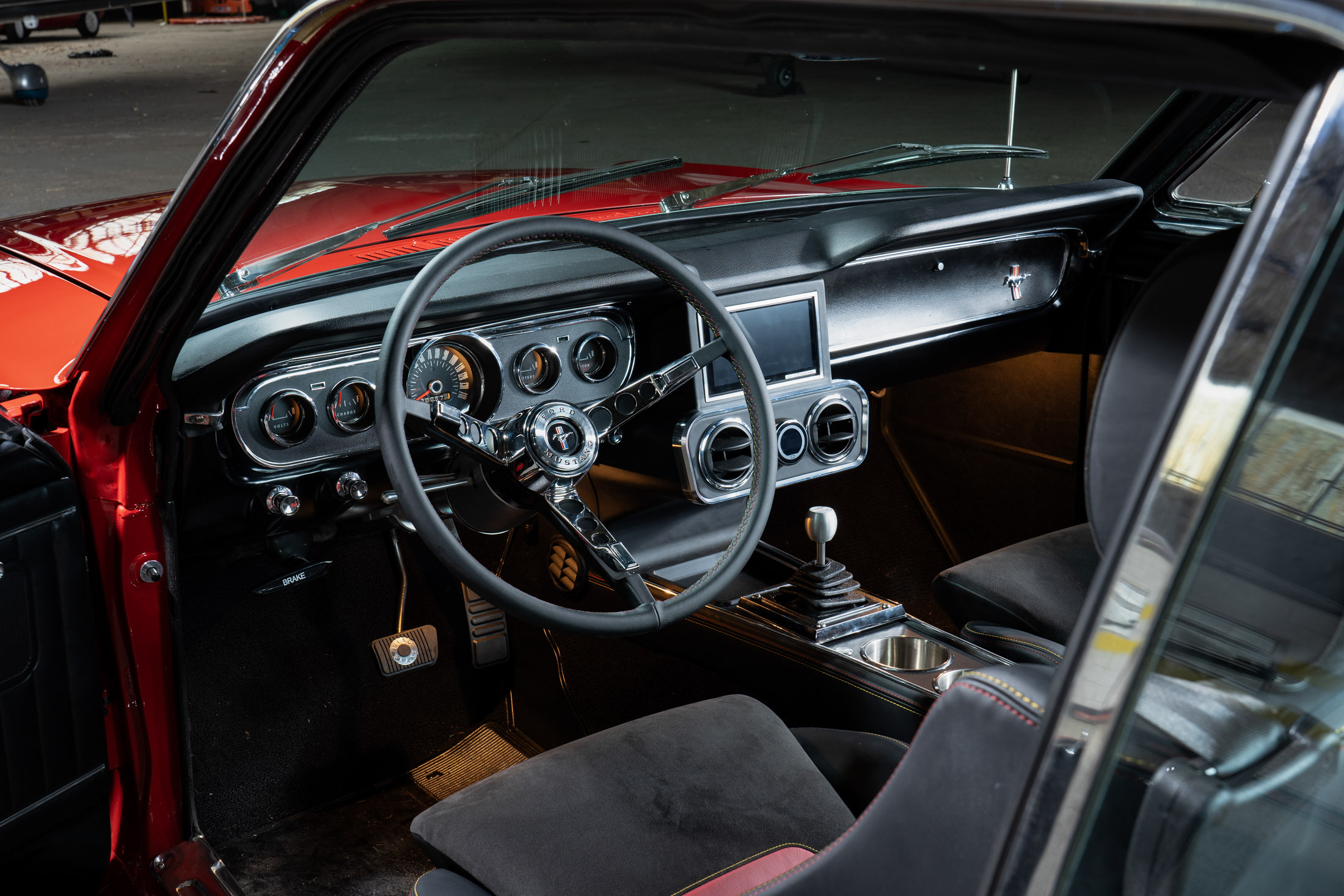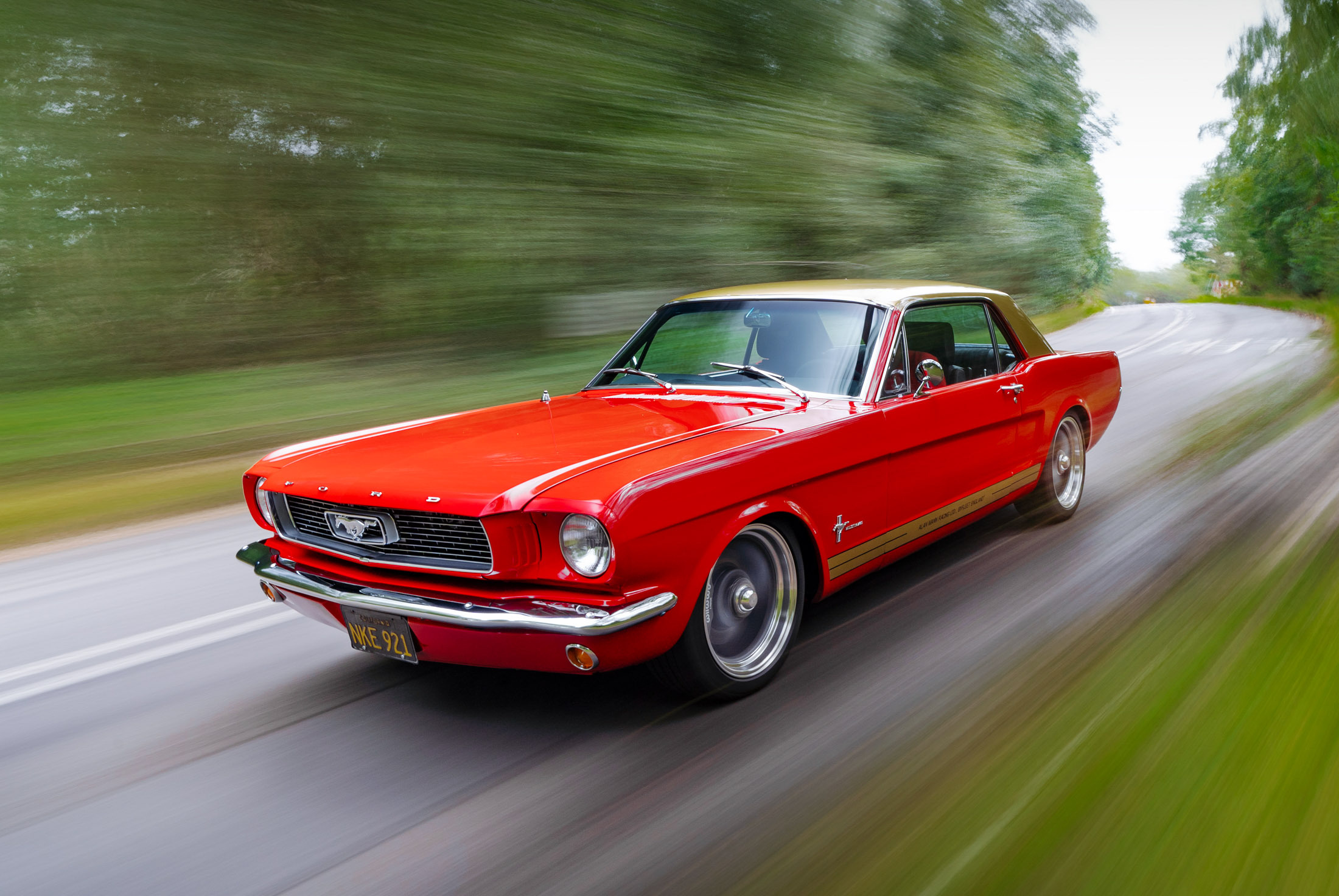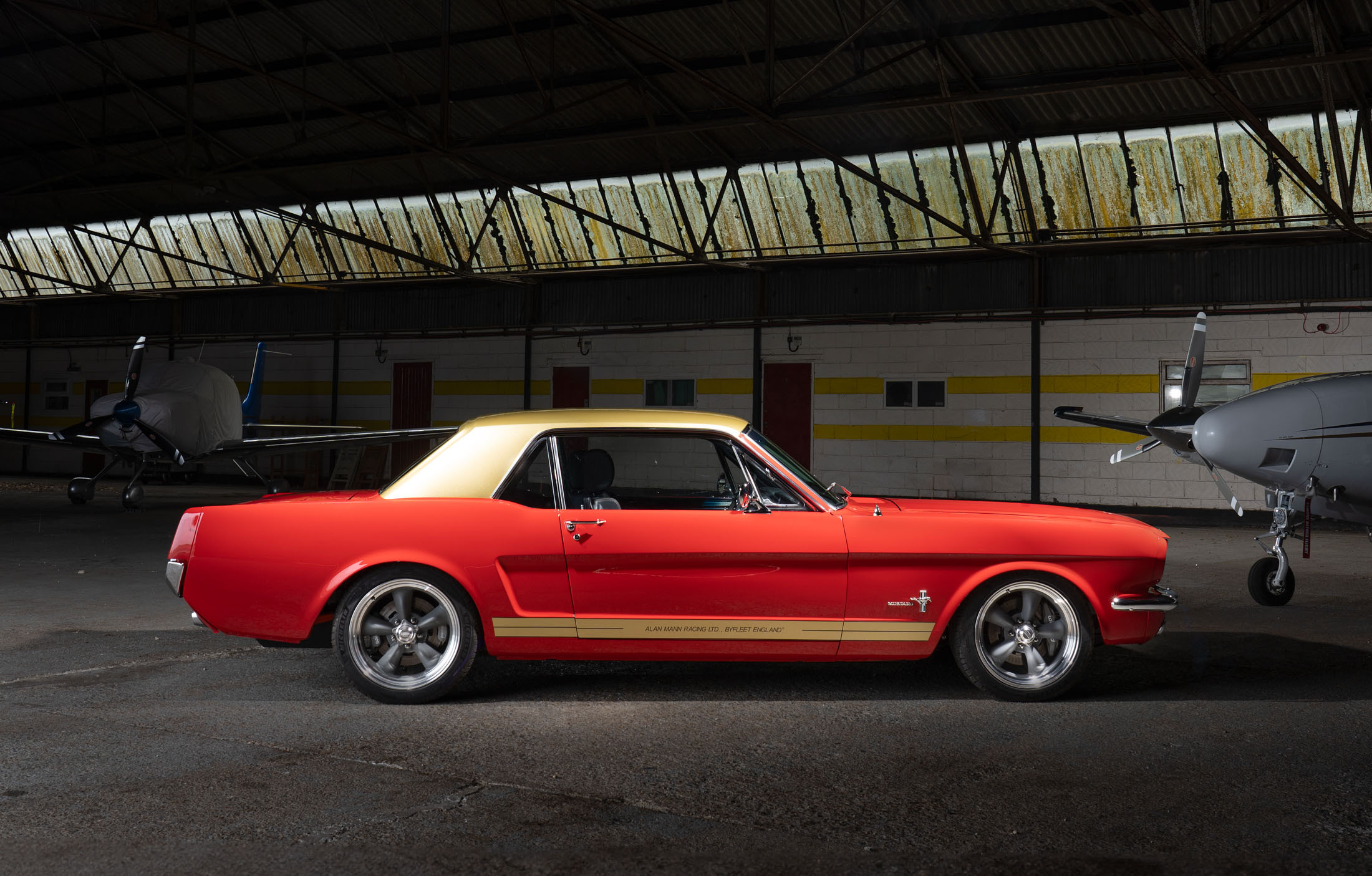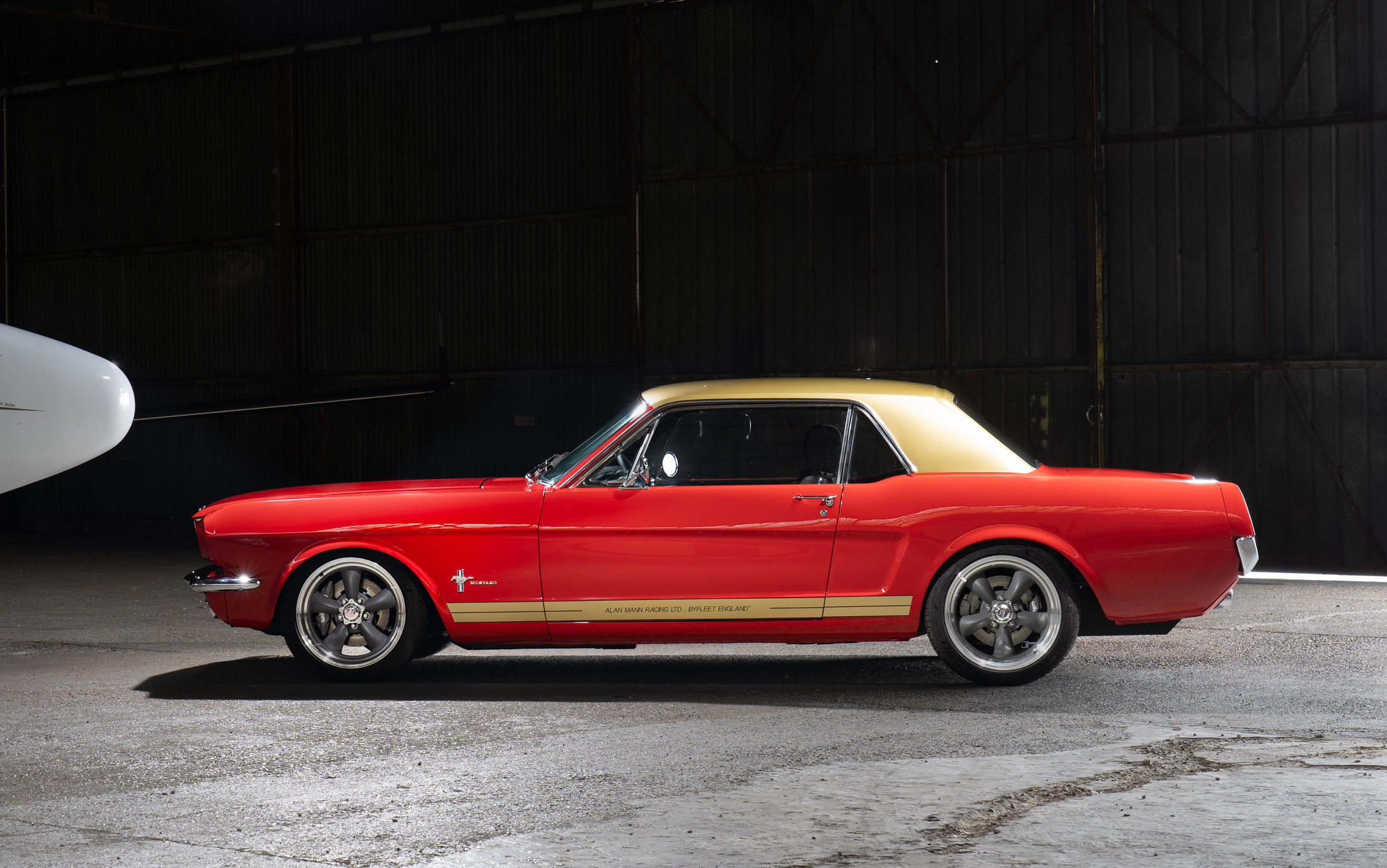Back in the 1960s the red and gold colors of Alan Mann Racing’s cars made them the easiest cars to spot on the grid. That and the fact that they were usually at the front. Among its many claims to fame, the British firm gave the Ford Mustang its first ever major motorsport win at the 1965 Tour de France, and almost 60 years later it’s giving the same generation of pony car an EV makeover.
UK-based AMR, or its North American partner, Mann ePower Cars, can either source a 1964-66 Mustang or work with a customer’s own car, swapping the original six- or eight-cylinder engine for an electric motor, restoring the bodywork and interior and upgrading the suspension with double wishbones, coilovers and rack and pinion steering to dramatically improve the ride and handling.
The 300 hp (304 PS) motor generates 229 lb-ft (310 Nm) of torque, and the 72 kWh battery pack weighs only slightly more than the 630 lbs (285 kg) of engine and gearbox that AMR removes, so acceleration is superior to that of any factory first-gen Mustang. Zero to 60 mph (96 km/h) takes 5.2 seconds, and though the artificially restricted 97 mph (156 km) top speed won’t win you any races, it’s probably enough for real road use.
As is the 220-mile (354 km) range, which is probably slightly more than you’d get out of an original V8 Mustang with its 16-gallon (61 liters) tank and 15 mpg economy. The AMR car accepts both AC and DC charges and can be filled from 20 to 80 percent in 40 minutes, plus it has other modern features such as proper climate control, decent seats, Apple CarPlay and Bluetooth connectivity, while still looking like a classic Mustang.
Related: The History Of Alan Mann Racing Weaves Through Some Of Ford’s Greatest Successes
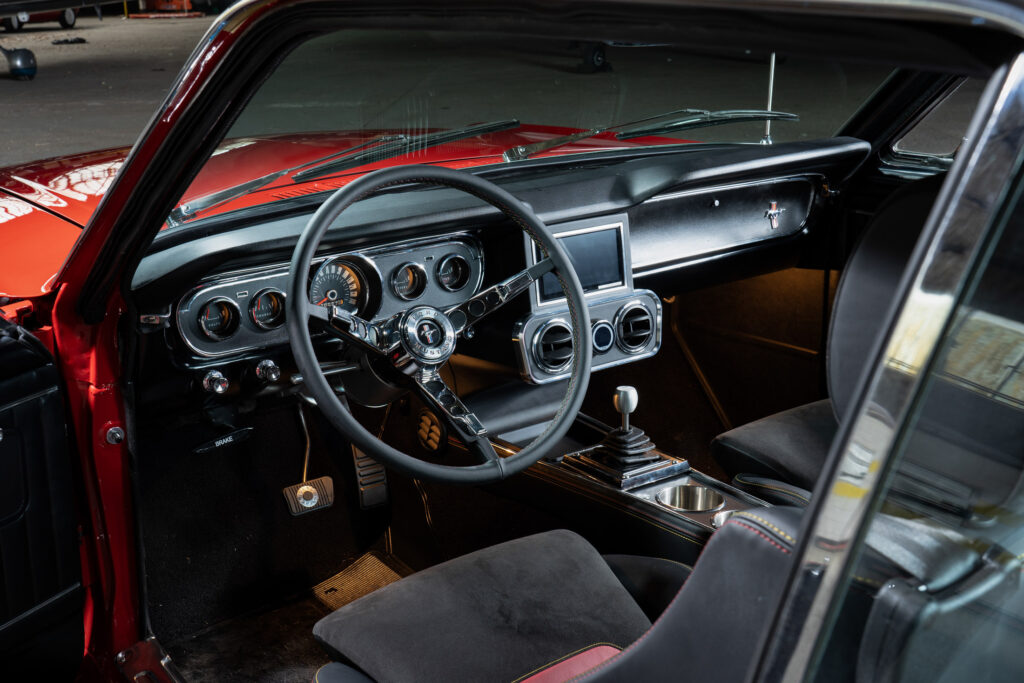
None of this comes cheap though, and AMR’s prices start at a hefty £200,000 ($244k). We don’t doubt the quality of the conversion, but there will be plenty of you reading that can’t see the point of a classic Mustang that doesn’t sound like a classic Mustang, even if it goes better than one. I’m of the same mind, but AMR has one eye on market trends and another on potential future legislation that threatens to curb the use of cool old combustion metal.
“We will always love the sight, sound and smell of a finely-tuned internal combustion engine, but we recognize there may come a time when they are no longer viable,” said Henry Mann, whose dad, Alan, passed away in 2012. “We believe electrification is a good way to keep these fabulous cherished classics on the road.”




